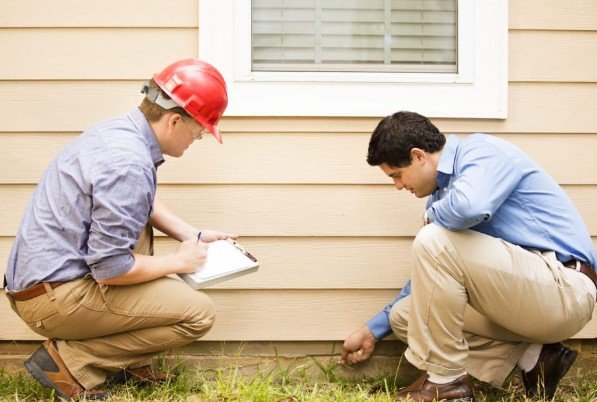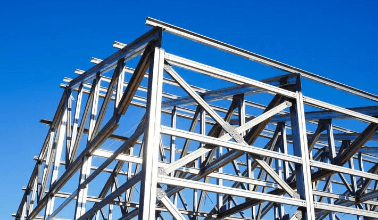
The Importance of Home Inspections in Real Estate Transactions
Introduction to Home Inspections
Home inspections are a pivotal step in the real estate process, offering both buyers and sellers a clear understanding of a property’s condition. A home inspection is an objective assessment of a property, focusing on its physical structure and various systems. Whether you’re buying or selling a home, the information gained from a home inspection can significantly impact your real estate decisions.
What is a Home Inspection?
A home inspection is a thorough evaluation of a property’s condition, typically conducted by a certified inspector. This process involves a detailed examination of the home’s major systems, including the structure, electrical, plumbing, and HVAC systems. The goal is to identify any existing or potential issues that could affect the property’s value or the safety of its occupants. Unlike an appraisal, which focuses on the property’s market value, a home inspection is concerned with its physical state and any repairs or maintenance that may be needed.
The Role of Home Inspections in Real Estate
In real estate transactions, home inspections serve as a protective measure for buyers, ensuring they are fully informed about the condition of the property before finalizing the purchase. For sellers, an inspection can identify issues that may need to be addressed before listing the home, potentially improving its marketability. Additionally, home inspections provide a basis for negotiating repairs or price adjustments, making them a critical component of the buying and selling process.
Why Home Inspections are Crucial in Real Estate
Identifying Potential Issues Early
One of the primary reasons home inspections are essential is their ability to uncover potential problems early. Issues like structural damage, faulty wiring, or plumbing leaks can be costly to repair if left unnoticed. A home inspection ensures that these problems are identified before they become major expenses. Early detection not only saves money but also provides peace of mind to the buyer, knowing that they are making a sound investment.
Protecting Buyer Investments
Purchasing a home is often the most significant investment people make in their lives. A home inspection acts as a safeguard, ensuring that the buyer’s investment is protected. By revealing any hidden defects or necessary repairs, a home inspection allows the buyer to make an informed decision, whether that means negotiating a lower price, requesting repairs, or even walking away from the deal altogether.
Enhancing Buyer Confidence
A thorough home inspection boosts buyer confidence by providing a detailed report of the property’s condition. This transparency allows buyers to proceed with the purchase, knowing exactly what they are getting into. It also helps buyers avoid unpleasant surprises down the line, such as unexpected repair costs or safety hazards. In this way, home inspections contribute to a smoother and more confident transaction process.
Facilitating Fair Negotiations
Home inspections play a crucial role in real estate negotiations. If the inspection reveals significant issues, the buyer can use this information to negotiate a lower purchase price or request that the seller make the necessary repairs before closing. This process ensures that both parties are on the same page regarding the property’s condition and that the final deal is fair and reflective of the home’s true value.
Read also: What is AI Hardware?
Key Components of a Home Inspection
Structural Integrity
The structural integrity of a home is one of the most critical aspects evaluated during a home inspection. Inspectors check the foundation, walls, ceilings, and roof to ensure that the structure is sound and free of defects like cracks, shifts, or water damage. Any issues with the structure can be major red flags, as they may indicate underlying problems that could compromise the safety and stability of the home.
Electrical Systems
Inspectors thoroughly examine the home’s electrical systems, including wiring, outlets, switches, and the electrical panel. Faulty wiring or outdated electrical systems can pose significant safety hazards, including the risk of fire. Ensuring that the electrical system is up to code and functioning correctly is vital for the safety of the home’s occupants and the long-term durability of the property.
Plumbing Systems
The plumbing system is another critical component of a home inspection. Inspectors check for leaks, water pressure issues, and the condition of pipes, faucets, and fixtures. They also examine water heaters and assess the overall efficiency of the system. Issues with plumbing can lead to water damage, mold growth, and other costly problems if not addressed promptly.
HVAC Systems
The heating, ventilation, and air conditioning (HVAC) system is essential for maintaining a comfortable living environment. Inspectors evaluate the functionality of the furnace, air conditioner, and ductwork to ensure they are operating efficiently and safely. Any issues with the HVAC system can affect the home’s energy efficiency and indoor air quality, making this a key area of focus during the inspection.
Roofing and Insulation
The condition of the roof and insulation is also a significant part of the home inspection process. Inspectors check for signs of damage, such as missing or damaged shingles, leaks, or inadequate insulation. A well-maintained roof and proper insulation are crucial for protecting the home from weather-related damage and ensuring energy efficiency.
Pest and Termite Inspection
Pest and termite inspections are often conducted in conjunction with the home inspection, especially in areas prone to infestations. Inspectors look for signs of termites, rodents, and other pests that could damage the property. Addressing pest issues early is essential to prevent long-term damage and maintain the integrity of the home.
Interior and Exterior Inspections
A comprehensive home inspection includes a detailed examination of both the interior and exterior of the home. This involves checking doors, windows, walls, floors, and ceilings for any signs of damage or wear. Exterior inspections focus on the condition of the siding, landscaping, drainage, and any external structures like garages or sheds. Ensuring that both the interior and exterior are in good condition is vital for the overall safety and value of the property.
The Home Inspection Process
How to Prepare for a Home Inspection
Preparing for a home inspection involves several steps to ensure that the process goes smoothly. For sellers, this means making sure the home is clean, accessible, and free of any obstacles that might hinder the inspector’s work. It’s also important to address any known issues beforehand, as this can prevent potential problems from arising during the inspection. Buyers, on the other hand, should be ready to ask questions and review the inspection report carefully.
What Happens During a Home Inspection
During a home inspection, the inspector will conduct a thorough examination of the property, typically lasting several hours. The inspector will take notes, photos, and possibly videos to document their findings. They will then provide a detailed report outlining any issues or concerns they discovered, along with recommendations for repairs or further evaluations. It’s crucial for buyers to attend the inspection if possible, as this provides an opportunity to ask questions and gain a better understanding of the property’s condition.
Common Tools and Equipment Used by Inspectors
Home inspectors use a variety of tools and equipment to conduct their assessments. These include moisture meters to detect leaks, infrared cameras to identify heat loss, and electrical testers to check outlets and wiring. Other tools might include ladders, flashlights, and specialized inspection software that helps inspectors document their findings. Understanding the tools used during a home inspection can give buyers and sellers a better idea of the thoroughness of the process.
How Home Inspections Impact Real Estate Decisions
Buyer vs. Seller Perspective on Inspections
Home inspections can have different implications depending on whether you are the buyer or the seller. For buyers, the inspection is an opportunity to uncover any potential issues before finalizing the purchase, allowing them to make informed decisions. Sellers, on the other hand, may view inspections as a way to identify and address problems that could affect the sale. In both cases, the inspection results can significantly impact the terms of the deal, including price negotiations and contingencies.
Impact on Mortgage Approval
Mortgage lenders often require a home inspection as part of the loan approval process. This is because the condition of the property can directly affect its value and, consequently, the lender’s investment. If significant issues are found during the inspection, it may lead to delays in the approval process or even a denial of the loan. Therefore, a successful home inspection is often a critical step in securing financing for the purchase.
How Inspections Influence Closing Deals
The results of a home inspection can have a significant impact on the closing process. If the inspection reveals major issues, it can lead to renegotiations between the buyer and seller. In some cases, the seller may agree to make repairs, reduce the sale price, or offer other concessions. Alternatively, the buyer may choose to back out of the deal altogether. As such, the home inspection is a pivotal factor in determining whether a real estate transaction moves forward or falls through.
Choosing the Right Home Inspector
What to Look for in a Home Inspector
Choosing the right home inspector is crucial for ensuring a thorough and accurate assessment of the property. When selecting an inspector, look for someone who is licensed, certified, and experienced in the type of property you are buying or selling. It’s also important to check for reviews or testimonials from past clients, as these can provide insight into the inspector’s reliability and professionalism. Additionally, consider whether the inspector is willing to provide a sample report, which can give you an idea of the thoroughness and clarity of their work.
Questions to Ask Potential Inspectors
Before hiring a home inspector, it’s essential to ask several key questions to ensure they are the right fit for your needs. Some important questions include:
- What is your experience with inspecting properties like mine?
- Are you licensed and insured?
- Can you provide a sample inspection report?
- How long will the inspection take?
- What areas of the property will be covered during the inspection?
- How soon will I receive the inspection report?
Asking these questions can help you gauge the inspector’s qualifications and ensure you are making an informed choice.
The Cost of Home Inspections
Average Costs of Home Inspections
The cost of a home inspection can vary depending on several factors, including the size and location of the property, the inspector’s experience, and the complexity of the inspection. On average, home inspections range from $300 to $500, although prices can be higher for larger or more complex properties. While this may seem like a significant expense, the potential savings from identifying issues early can far outweigh the cost of the inspection.
Factors Influencing the Cost
Several factors can influence the cost of a home inspection. These include the size of the property, with larger homes typically requiring more time and effort to inspect. The age and condition of the home can also play a role, as older homes may have more issues that need to be evaluated. Additionally, the location of the property can affect the cost, as inspectors in certain areas may charge higher rates due to demand or local market conditions.
Cost vs. Value of Inspections
While the cost of a home inspection is an important consideration, it’s equally important to consider the value that an inspection provides. A thorough inspection can uncover issues that could lead to costly repairs or safety hazards down the line. By identifying these problems early, buyers can make informed decisions about whether to proceed with the purchase, negotiate repairs, or walk away from the deal. In this way, the value of a home inspection often far exceeds its cost, making it a worthwhile investment in the real estate process.
Home Inspections for Different Types of Properties
Inspections for Residential Properties
Home inspections for residential properties are the most common type of inspection. These typically involve a thorough examination of the home’s structure, systems, and components to ensure they are in good condition. Residential inspections are crucial for identifying issues that could affect the safety, comfort, and value of the home, making them an essential part of the home-buying process.
Inspections for Commercial Properties
Inspections for commercial properties are more complex than those for residential homes due to the larger size and different types of systems involved. These inspections often require specialized knowledge of commercial building codes, safety standards, and operational systems. Commercial inspections are critical for ensuring that the property is safe for its intended use and complies with all relevant regulations.
Inspections for New Constructions
Even new constructions require inspections to ensure that they meet building codes and are free of defects. While new homes are generally in better condition than older ones, they can still have issues such as faulty wiring, plumbing leaks, or poor insulation. A home inspection for new construction can catch these problems early, allowing the builder to address them before the buyer moves in.
The Future of Home Inspections
Technological Advances in Home Inspections
The field of home inspections is evolving rapidly, with new technologies playing an increasingly important role. Tools like drones, infrared cameras, and digital reporting software are making inspections more thorough, accurate, and efficient. These advances allow inspectors to identify issues that might have been missed with traditional methods, providing buyers and sellers with more detailed and reliable information.
The Role of Remote Inspections
Remote inspections are becoming more common, especially in the wake of the COVID-19 pandemic. These inspections use video conferencing technology to allow buyers and inspectors to tour the property together, even if they are in different locations. While not a replacement for in-person inspections, remote inspections can be a valuable tool for buyers who are unable to attend the inspection in person.
FAQs
How long does a typical home inspection take?
A typical home inspection takes between 2 to 4 hours, depending on the size and condition of the property.
Can a home fail an inspection?
Homes do not “fail” inspections. Instead, the inspection report will note any issues that need to be addressed. The buyer and seller can then negotiate based on these findings.
Do buyers need to be present during the inspection?
While it is not mandatory, it is highly recommended that buyers attend the inspection to ask questions and better understand the property’s condition.
What happens if the inspector finds a problem?
If the inspector finds a problem, the buyer can request repairs, negotiate a lower price, or, in some cases, choose to back out of the deal.
Are home inspections necessary for new constructions?
Yes, new constructions should be inspected to ensure they meet building codes and are free of defects.
How should one prepare for a home inspection?
To prepare for a home inspection, ensure the property is clean and accessible, address any known issues, and be ready to ask questions during the inspection.
Conclusion
Summarizing the Importance of Home Inspections
Home inspections are an essential part of the real estate process, providing valuable insights into the condition of a property. They help buyers make informed decisions, protect their investments, and ensure the safety and integrity of the home. For sellers, inspections can highlight areas that need attention, making the property more attractive to potential buyers. Ultimately, home inspections are a critical step in ensuring a successful and fair real estate transaction.
Final Thoughts on the Impact of Inspections in Real Estate
In conclusion, the importance of home inspections in real estate transactions cannot be overstated. They serve as a crucial checkpoint, ensuring that both buyers and sellers have a clear understanding of the property’s condition. By identifying potential issues early and facilitating fair negotiations, home inspections help to create a smoother, more transparent, and ultimately more successful real estate transaction.




